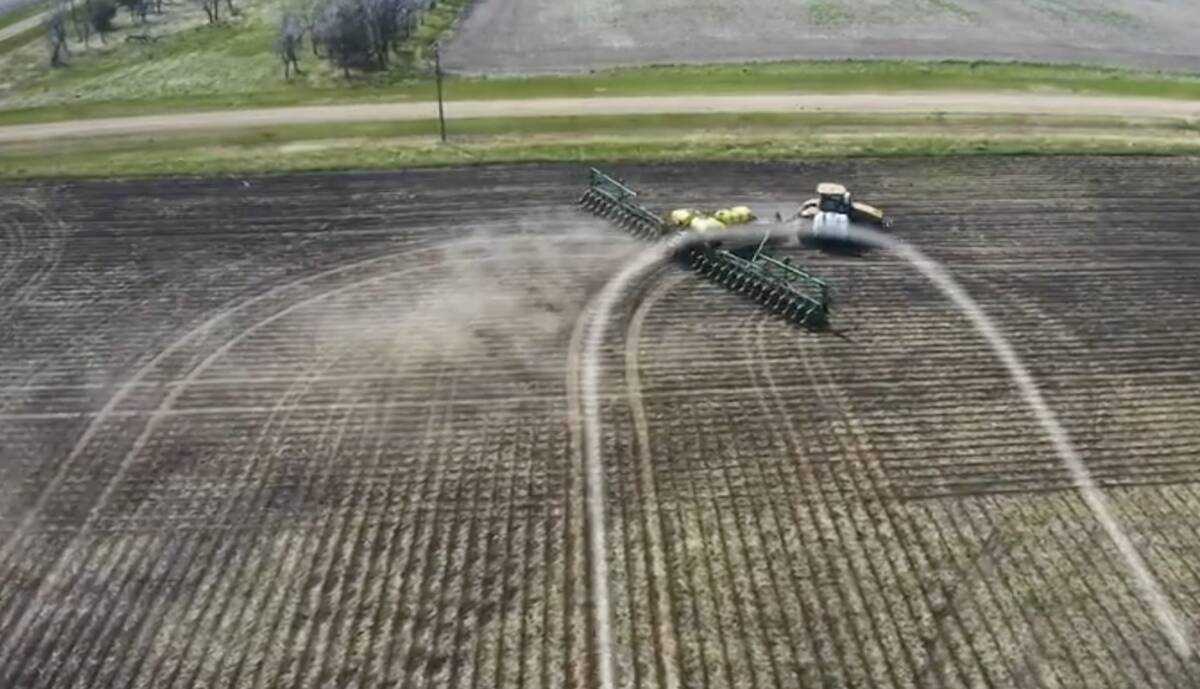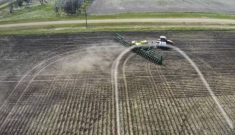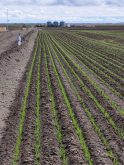When I m on assignment for COUNTRY GUIDE, young farmers have been talking to me for several years now along the lines of, My father has hired hands, I have employees. Now, however, today s young farmers are moving the HR yardsticks even further.
My interview with 32-year old Jeff Vermeersch is a prime example. Vermeersch, who operates a large cash crop farm near Tillsonburg, Ont. with his brother, Greg, age 36, and their parents George and Willy says he s a better human-resources manager because he recognizes that he and his employees share a series of traits that have a huge bearing on loyalty, commitment and performance.
Read Also

Are farmers ready for the digital ag revolution?
How farmers are using technology to remain competitive, find opportunities and meet challenges.
As a young farmer, Vermeersch says he s constantly reminded of the differences between his generation and his parents. We re more involved with our families, Vermeersch says. We want more time off to spend with our families than our fathers did. Our wives work off the farm and the world doesn t revolve around the farm the way it used to.
Vermeersch also believes farming today is simply more intense, and that it can take a toll faster than it used to. It s why the Vermeersch farm has set out structured schedules to allow time for family and renewal. We all try to take at least one day off per weekend to spend with our families, says Vermeersch, who also tries to get away for an annual vacation.
Farming seems to get more stressful every year so we like to get away for a winter vacation, he adds, noting that his parents at his age didn t seem to have the same need to travel and to see what else is out there.
On the Vermeersch farm, what goes for the farmer, goes for the employees too, including the five full-time staff as well the family members involved in the operation.
Farming is a business these days more than a way of life, Vermeersch says. It s a sentiment that most farmers would agree with, whatever their age. But Vermeersch and his contemporaries take it a step farther.
Like any business, you need to have more structured hours if possible, especially with employees in the younger generation, Vermeersch says. We always meet every day at 8 a.m. at our office to set the expectations for the day in terms who is going where and what they are doing. In the off season we try to end the day at 4:30 p.m. This way the employees can plan their lives! 8-4:30 p.m.!
In the busy time we work hard, long days like any farming operation, Vermeersch adds, but we always try to be reasonable and safe, as working too many hours burns people out and quality of work dramatically decreases.
If at all possible we try and take Sundays off, except during planting and harvest if weather forces us to work on a Sunday.
Vermeersch employees get two weeks off plus they can take their banked overtime off if they wish. Vacation is important to clear your head and come back refreshed and ready to go again, Vermeersch says.
It s important to be flexible too, he adds. We try to accommodate any of the employees who need to spend time with their children or partners, as we acknowledge everyone has responsibities at home. Recently we have designed a performance-management system to reward our employees for taking responsibility and working above and beyond. We set targets as a team and individually.
As part of the performance management we also try and outline one or two personal development areas (training). As part of the performance management we review one on one with the employees to give and receive feedback. We have found that it is extremely important to allow employees to be independent and give them an opportunity to voice opinions.
It s just part of what makes this generation different, Vermeersch says. And it is a difference that employers need to note, because employees will rapidly figure out whether they re working in an environment that is one they want to stick with.
My generation needs to be praised, rewarded continuously and have someone take interest in our personal development, Vermeersch says. Some other farmers might complain about what seems like hand holding, but to Vermeersch, it marks an opportunity. This is all part of our employee retention plan.
Building on youth
Vermeersch s comments ring true with Deb Calverley, business adviser with MNP LLP in Deloraine, Man. Farmers today are looking for a more defined work-life balance, Calverley says. Business owners as a whole, including farmers, are recognizing their own need to spend more time with their family and to take planned breaks from the business.
The farm as a people place has changed, Calverley says.
In the past, the farm was the hub of family activity, with the entire family working together and everyone driven first and foremost by the objective of making the farm as successful as possible.
Today, by contrast, family interaction no longer centres on the farm, Calverley says. People are working off the farm, and children are more involved in extracurricular activities.
In the same timeframe, however, the farm as a business has changed at least as much. Today s farms are larger and they operate in more competitive markets. The machinery is massive, too, because more work must be done in a shorter period of time.
Such changes come with major implications for human resources. Many jobs on the farm today are too complex for a teenager just off the bus from high school. The equipment is too complicated, the jobs are too time sensitive, and the costs of getting it wrong can quickly become astronomic.
Besides, in order to achieve their own work-life balance, farmers need knowledgeable and reliable employees. Like other business owners, farmers face the challenge of attracting and retaining good labour, Calverley says. They need to offer an employment package which among other things allows for their employees to achieve a work-life balance.
Today s farmers are also building business models with the specific intention of providing opportunities that support work-life balance and allow more family time and vacations. For example, Calverley worked with one operation involving three families. The first step was a family discussion to determine their personal and business goals for the purposes of creating a mission statement. All three partners identified work-life balance as one of their goals. As a result, they agreed upon vacation schedules and days off and wrote these into their policy manual.
John Fast, an executive coach and president of Family Enterprise Solutions, has worked with farm families in every agricultural sector in every province. He sees the increased focus on work-life balance in the younger generation as a very positive change.
When working with farm families, he has seen some family members more often men but sometimes women become addicted to work. There s nothing wrong with hard work but it can get excessive, says Fast. It gives people a sense of confidence, and a measure of control, but if we look deeper it s often because they feel emotionally disconnected from others but don t know what to do about it.
Such workaholic farmers might think they re committed to the farm when in fact, they re avoiding dealing with issues that would make them healthier, more effective managers. They lack the ability to express themselves and to develop more intimacy in their relationships, explains Fast. I ve seen a lot of pain and depression among farmers as a result.
Fast recommends farm couples participate in a marriage-enrichment workshop. They’re a good way to tune-up a marriage, they re fun, and they re a tool for moving up to peak performance, he says.
Such programs stimulate discussion and open up the communication lines, Fast says. Often spouses have no idea what the other person wants to get out of life.
Farmers must be disciplined about scheduling vacations and time off, continues Fast. If you are emotionally healthy you will find ways to create positive time to spend with your family, he says. If it s just not possible to schedule big blocks of time away from the farm, use smaller blocks of time to participate in activities you enjoy. He also recommends cultivating friendships and social networks.
The next generation who will be successful will professionalize their farms and run them more like businesses, says Fast. With a better understanding of work-life balance, the younger generation will manage their time differently than previous generations.
In Fast s experience, the older generation seems to feel the need to do everything themselves. But a division of labour which creates clear roles for those involved in the operation frees up time and allows them to use it more creatively.
Unfortunately, this increased emphasis on time off by the younger generation can create tension between the generations. The tendency of the younger generation to manage their time differently may be seen by the older generation as a criticism of their own lifestyle, or they may think the younger generation is less committed.
That s the wrong message for parents to draw, says Calverley.
Work-life balance is good for the business, Calverley says. In fact, it should be a business objective, and it should be discussed and planned for just like any other part of the business, with actionable plans and a firm commitment to implementing them.
Calverley says that while it is challenging, work-life balance can be achieved by creating a business plan and a cash flow forecast that supports this goal. And there s good reason to make work-life balance one of your business goals, she says. Close personal relationships are essential for helping us weather the storms of life and the stresses of farming.CG















